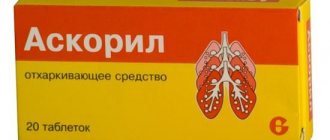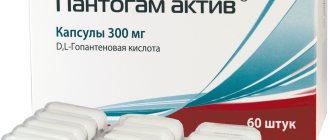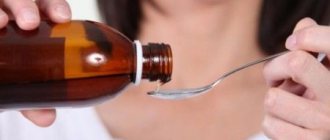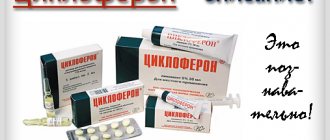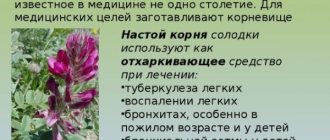Synonyms of nosological groups
| Category ICD-10 | Synonyms of diseases according to ICD-10 |
| J01 Acute sinusitis | Inflammation of the paranasal sinuses |
| Inflammatory diseases of the paranasal sinuses | |
| Purulent-inflammatory processes of the paranasal sinuses | |
| Infectious and inflammatory disease of ENT organs | |
| Sinus infection | |
| Combined sinusitis | |
| Exacerbation of sinusitis | |
| Acute inflammation of the paranasal sinuses | |
| Acute bacterial sinusitis | |
| Acute sinusitis in adults | |
| Subacute sinusitis | |
| Acute sinusitis | |
| Sinusitis | |
| J32 Chronic sinusitis | Allergic rhinosinusopathy |
| Purulent sinusitis | |
| Catarrhal inflammation of the nasopharyngeal region | |
| Catarrhal inflammation of the paranasal sinuses | |
| Exacerbation of sinusitis | |
| Chronic sinusitis |
The course of treatment and dosage are prescribed by the doctor, depending on the type of disease. In general, a week to two is enough for complete recovery. There are no data on the pharmacokinetics of each active substance due to the rich composition of the drug. Thus, special research technologies and the use of markers do not provide a complete picture of the process.
Sinupret tablets are recommended for children over 6 years of age. The dragee is taken orally without chewing. The solid form of the medicine can be washed down with water. Adults are prescribed 2 tablets 3 times a day, and children from 6 to 16 years old - 1 tablet 3 times a day. If after 14 days of regular use the condition has not improved, it is recommended to consult a doctor for advice.
Sinupret drops have a bitter taste due to the herbal composition, so it is recommended to take the medicine with water, especially for children who often refuse to take tasteless medications. Needs to be diluted in a small amount of water:
- for adults – 50 drops, 3 times a day;
- for children from 6 to 16 – 25 drops, 3 times a day.
Drops of the drug, which are called syrup, have a pleasant cherry taste, so not only children, but also older children and adults enjoy using them. The medicine is approved for children over 2 years old, as it does not contain alcohol. Instructions for use contain the following information:
- for adults and children over 12 years old – 7 ml of syrup 3 times a day;
- for children from 6 to 12 years old - 3.5 ml 3 times a day;
- for children from 2 to 6 years old – 2 ml 3 times a day.
How to take Sinupret during pregnancy and lactation? The use of drops in the first half of pregnancy is not recommended due to the alcohol content, but in the second half the medicine can be added to a nebulizer for inhalation or diluted with saline solution. The same can be done when breastfeeding. Dragee for pregnant and nursing mothers is prescribed 2 tablets 3 times a day.
The dosage and frequency of administration depends on the age of the child. The average duration of treatment is 1-2 weeks. In severe cases, therapy can be extended to 3 weeks. The effectiveness of the drug is not affected by food intake, so the medicine can be used at any time.
For children over 6 years of age, preference is given to Sinupret tablets. You need to take 1 tablet 3 times a day.
Sinupret nasal drops do not exist. This release form is intended for oral use. Drops can be used diluted or undiluted. Dosage of Sinupret drops for children:
- 2-5 years – 15 drops 3 times a day;
- 6-11 years – 25 drops;
- over 12 years old – 50 drops.
As prescribed by the pediatrician, the dosage of Sinupret for children can be increased.
After opening the bottle, the drops are stored for no more than 3 months.
The syrup should be drunk undiluted. Children can add Sinupret to warm tea or juice. For children aged 2-4 years, the dosage is 2 ml, 5-11 years - 3.5 ml, over 12 years - 7 ml. The frequency of administration is 3 times a day.
Inhalations
The instructions for use say nothing about this method, and doctors also differ in their opinions. Some are against it, while others, on the contrary, talk about less harm to health. That is why inhalations for children with Sinupret in a nebulizer are allowed only after consultation with a pediatrician.
https://www.youtube.com/watch?v=C0hIBA_hN_U
Sinupret dosage for children:
- 2-4 years – the ratio of medicine to saline solution is 1:3;
- 5-12 years – 1:2;
- over 13 years old – 1:1.
The diluted medicine must be used within 24 hours. Inhalations should be carried out 3 times a day.
special instructions
As a result of the studies, no effect of Sinupret on the ability to perform actions requiring attention was revealed. The main components of the drug cannot reduce the ability to drive a vehicle or use other machinery.
But drivers should be aware that the drops and, to a lesser extent, the syrup contain alcohol, which can be detected through appropriate testing. Therefore, when taking the medicine in this form, it is better not to drive.
Pregnant women and nursing mothers should not start taking this drug on their own; first consult a doctor. The medicine should not be given to children under 2 years of age.
Operating principle
Thanks to the natural plant extracts contained in the drops, Sinupret has an anti-inflammatory effect, has a slight bactericidal and antiviral effect, and relieves swelling of the nasal and throat mucosa.
After its use, the contents of the paranasal sinuses are liquefied and eliminated naturally. This clears the upper respiratory tract, helps restore nasal breathing, and when taken early, it counteracts the development of various complications associated with inflammation.
The drops are not addictive and can be reused. This safe remedy based on herbal raw materials is suitable for the treatment of colds, acute respiratory infections, ARVI, influenza, as well as complications in the form of inflammation of the nasopharynx. Natural substances act on the disease gently but effectively, without causing harm to the child’s body.
Efficiency mark
Before starting therapy, you must carefully read the instructions. It is imperative to adhere to the dosage and not increase it in order to achieve greater effectiveness. If there is no positive dynamics during the treatment process, it means that the drug does not affect the symptoms of the disease. It is best to consult a doctor so that he can determine whether in your particular case there is a positive effect from the drug, and whether a replacement is required.
Sinupret can be classified as an immunomodulatory and antiviral drug. Therefore, the drug can also be taken for prophylaxis during epidemics in order to protect the body and increase its resistance to infections. Thanks to its natural ingredients, it is suitable for almost all patients with respiratory diseases and very rarely provokes allergic reactions.
Which pharmacies are best to buy price
| Name | Manufacturer | Release form | Dosage | Price, rubles |
| Sinupret | Bionorica SE, Germany | drops | 100 ml | 382 |
| Sinupret | Bionorica SE, Germany | syrup | 100 ml | 294 |
| Sinupret | Bionorica SE, Germany | dragee | 50 pcs. | 358 |
What is better to take
Having considered these two drugs, the question arises as to whether it is better to use Tonsilgon or Sinupret?
To answer this, the following factors must be taken into account:
- The nature of the pathological process . If there is increased mucus production, then it is best to use Sinupret. But it is worth treating chronic forms of the disease with the help of Tonsilgon.
- Patient's age . Since the drops contain alcohol, children need to be extremely careful when using them. In addition, Sinupret is prohibited for use by children under 2 years of age, but Tonsilgon for children can be used from birth.
- Pregnancy and breastfeeding. Tonsilgon, intended for inhalation, can be used during pregnancy and lactation. But Sinupret is prohibited for use by women who are breastfeeding.
In addition, when treating a child, it is better to use Sinupret, since it should be used less often than its analogue. Tonsilgon also leads to the development of allergies. But it is best if you entrust the right of choice to your attending physician. Only he can choose an effective medicine and the correct dosage.
Pharmacological group
| Category ICD-10 | Synonyms of diseases according to ICD-10 |
| J01 Acute sinusitis | Inflammation of the paranasal sinuses |
| Inflammatory diseases of the paranasal sinuses | |
| Purulent-inflammatory processes of the paranasal sinuses | |
| Infectious and inflammatory disease of ENT organs | |
| Sinus infection | |
| Combined sinusitis | |
| Exacerbation of sinusitis | |
| Acute inflammation of the paranasal sinuses | |
| Acute bacterial sinusitis | |
| Acute sinusitis in adults | |
| Subacute sinusitis | |
| Acute sinusitis | |
| Sinusitis | |
| J32 Chronic sinusitis | Allergic rhinosinusopathy |
| Purulent sinusitis | |
| Catarrhal inflammation of the nasopharyngeal region | |
| Catarrhal inflammation of the paranasal sinuses | |
| Exacerbation of sinusitis | |
| Chronic sinusitis |
The effect of Sinupret on cough symptoms
The drug is prescribed to patients with infectious and inflammatory diseases of the respiratory system - rhinitis, sinusitis, pharyngitis, laryngitis, in which the production of mucous secretions is increased.
With sinusitis and rhinitis, copious secretions flow down the back wall of the nasopharynx. They irritate the throat and cause coughing attacks. Sinupret reduces the secretion of epithelial glands, eliminates rhinorrhea and prevents the development of cough.
When the pharynx is inflamed, the cough is most often dry, the endothelium is inflamed with severe swelling. This condition is accompanied by pain when swallowing food and the urge to paroxysmal cough. The herbal preparation eliminates these signs and makes the patient feel better.
Sinupret for bronchitis is prescribed to prevent congestion in the upper and lower respiratory tract. The medicine protects the mucous membrane from the formation of erosions and ulcers that can appear with a prolonged cough, characteristic of inflammation of the bronchial tree.
The drug reduces or eliminates the severity of such pathological signs of catarrh of the respiratory mucosa:
- hyperemia and swelling of the epithelium;
- irritation, itching of the mucous membrane, sore throat and discomfort;
- pain during the act of swallowing and during conversation;
- spastic attacks of suffocation;
- increased formation of serous or purulent exudate;
- violation of the integrity of the mucous membrane;
- difficulty with sputum discharge;
- obstruction of the upper respiratory tract.
Herbal drops can be prescribed to small patients with laryngitis - an infectious inflammation of the larynx. The disease is characterized by difficulty breathing and barking cough, wheezing and nervous agitation. This condition is dangerous, since within a few hours it can lead to the development of false croup - an acute narrowing of the larynx, which prevents air from entering the lungs. When a child coughs, Sinupret prevents this complication and the spread of infection throughout the respiratory system.
Description of the dosage form
Film-coated tablets: round, biconvex, green in color, with a smooth surface. Three layers are visible on the fracture: the inner layer is from light brown with a greenish tint to brown, white inclusions are acceptable, the middle layer is white, the outer layer is green.
Drops for oral administration: clear, yellowish-brown liquid with an aromatic odor. Slight turbidity or slight precipitation may occur during storage.
Medicinal properties
Sinupret for sore throat is effective due to its active composition of natural origin . Sorrel leaves are a natural source of vitamin C, carotene and oxalic acid. Primrose thins mucus and has an expectorant effect, which is effective for sore throat and bronchitis.
Verbena has anti-inflammatory and antimicrobial properties, reduces the severity of allergic manifestations. Elderberry prevents the appearance of inflammatory foci in the throat and activates the removal of mucus. Gentian enhances the outflow of mucus from the sinuses during sinusitis.
The complex action is manifested in the following effects:
- secretolytic;
- decongestant;
- immunostimulating;
- anti-inflammatory;
- antiviral.
The active components of the composition inhibit the proliferation of respiratory bacteria and viruses: streptococci, staphylococci, influenza A virus, parainfluenza, respiratory syncytial viruses.
When treated with Sinupret, there is a decrease in swelling of the throat tissue and normalization of secretion, ventilation of the maxillary sinuses and their drainage are restored, and a runny nose is eliminated. The drug activates the protective mechanisms of the epithelial layer of the respiratory tract and increases the effectiveness of antibiotic therapy.
Directions for use and doses
Inside.
Film-coated tablets should be swallowed whole, without chewing, with a small amount of water; drops for oral administration must first be diluted in a small amount of water.
Adults - 2 tablets. or 50 drops 3 times a day; children from 2 to 6 years old - 15 drops 3 times a day; school-age children - 25 drops or 1 tablet. 3 times a day. Duration of treatment is 7–14 days.
If symptoms persist for more than 7–14 days or recur periodically, you should consult your doctor.
When are medications prescribed?
The drugs in question are prescribed for the treatment of an infectious process. But their influence may differ and this is important to consider when choosing. It is not recommended to take Tonsilgon simultaneously with Sinupret.
Find out if raspberry jam helps with colds here.
Tonsilgon is used in the treatment of the following diseases:
- inflammatory processes (laryngitis, pharyngitis, rhinitis);
- bacterial processes, where Tonsilgon is used as part of complex treatment;
- to avoid complications during ARVI;
- to prolong the remission of a chronic form of colds;
- to increase the body's resistance.
But Sinupret can be used in the treatment of the following ailments:
- inflammatory process affecting the sinuses (sinusitis, frontal sinusitis, ethmoiditis);
- acute inflammation with increased viscosity and mucus production.
Use during pregnancy
Drinking alcohol in any quantity negatively affects the development of the fetus. Therefore, drops and syrup are not recommended for pregnant women. But the pills have established themselves as one of the most successful means for treating acute rhinitis and sinusitis in pregnant women. However, you should not self-medicate, but be sure to consult a gynecologist.
Taking Sinupret during breastfeeding is not recommended, since clinical trials have not been conducted and the results are unpredictable.
Interaction with other drugs
Sinupret can be combined with various antibacterial drugs; the medicine can be purchased at any pharmacy without a doctor's prescription. It can be stored for no more than three years at a temperature not exceeding 25 degrees.
Evaluation of treatment effectiveness
Before using the drug, you should consult your doctor and do not violate the prescribed dosage. After just 3 days, the first symptoms of the viral disease will begin to disappear, and on the seventh day the cold will go away completely.
If the medicine gives the desired result and is indicated for you during pregnancy, then it can be used for a longer time, depending on the patient’s condition. There is no data on overdose to date.
Possible side effects
In most cases, the product is well tolerated, but in isolated cases allergic reactions are possible: the appearance of red spots on the skin, unbearable itching, nausea. In this case, it is better to stop taking the drug. If the reaction intensifies, you must seek urgent help from the nearest medical department.
People who have undergone treatment for alcoholism may experience signs of poisoning after taking the medication: nausea, abnormal heart rhythm, blurred vision, dizziness, and general malaise. For such patients, it is better to opt for tablets.
Negative symptoms from the digestive system may also appear: nausea, stomach pain, vomiting.




